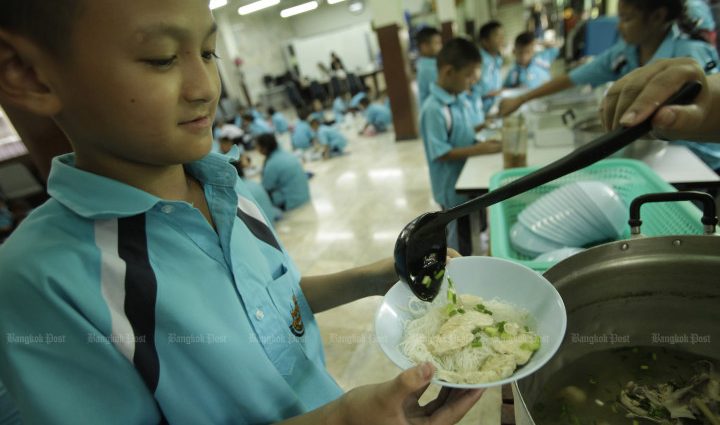Japanese-style central kitchen could lead to better quality and lower costs

The Bangkok Metropolitan Administration (BMA) could adopt a central kitchen system used to supply meals to schools in Japan, to improve the quality of school lunches in Thailand.
Japan’s experience in using a central kitchen system to supply meals to schools was shared by Nobuko Tanaka, a former school lunch specialist with Japan’s School Health Education Division, at a seminar in Bangkok recently.
In this case, the central kitchen consolidates processing and cooking for school meals at one site, increasing economies of scale and efficiency.
The prepared food (fresh, cooled, and/or frozen) is taken to individual school kitchens for portioning, heating, and serving. Each central kitchen serves a number of schools in the same area, she said.
Deputy city clerk Dr Wantanee Wattana said the BMA was considering adopting the Japanese model to supply lunch to schools. The BMA is surveying areas in Bangkok which are ready for a pilot phase of the project.
Currently, the BMA operates Thai School Lunch for BMA, a school lunch meal system under which the BMA provides schools with guidelines on the standard quality of meals, she said. The guidelines suggest the proper amount of energy and nutrition that students should receive.
The Institute of Nutrition at Mahidol University also has devised a school lunch programme with a rotating list of dishes to help improve nutrition. Many schools have problems hiring cooks or catering providers, cooking and food cost management, which a centralised system could help solve, said Dr Wantanee.

